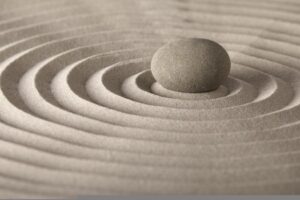Seeking solitude (as opposed to isolation and/or loneliness) can be a very rewarding pursuit in Recovery. Although connecting with others is essential for the recovering alcoholic/addict, solitude (connecting with oneself) can be every bit as important.
It needs to be stated right off the bat that EARLY IN RECOVERY, connection with others is far more important than solitude! The pursuit of solitude is best deferred to LATER Recovery, once one’s social connections have been firmly established. Solitude does not replace human connections, it complements them.
What is solitude?
It is an active process of searching out peace, a stepping-stone to serenity. It is NOT isolation, nor is it avoidance of people, nor is it loneliness. Solitude is a positive form of aloneness by choice and intent. It is a chance for meditation and contemplation. It is an opportunity to feel gratitude, to be creative, to decompress. It is a great way to practice mindfulness.
How do we get solitude?
We need to find time away from kids/ spouse/ work/ computers/ internet/ television/ cell phones… Solitude does not have to be justified. Self-care is not selfish. Remember: if you are kind to yourself, then you can be kind to someone else.
Solitude can be part of one’s Recovery. It should be regularly sought out as an opportunity to acquire and experience serenity. It should not be negotiable. It is about setting boundaries. It can function as an antidote to addictive thinking. It should therefore be scheduled regularly as part of one’s routine.
Start by turning off your computers, televisions and cell phones and try out solitude on a regular basis. It works, and it fits in beautifully with Recovery.
Solitude means different things to different people: some people prefer quieter activities such as cooking, playing or listening to music, reading, writing, walking, observing nature, meditation…
Others prefer a more active type of solitude: physical exercise such as kayaking or golfing or cycling; experiencing the great outdoors through hiking, motor-boating or sailing; dropping anchor in the middle of a lake; woodworking…
Whichever mode of solitude you choose, it is important to actively and regularly schedule (and if necessary, defend) your solitude time. It is also essential that you eliminate all modern electronic distractions from the immediate environment. Only then can you connect with yourself.




Leave a Reply